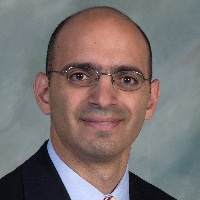
 Achalasia is a swallowing disorder that affects your esophagus. The main function of the esophagus, which is a muscular tube, is to transport food and liquids into your stomach from your mouth. It is a very rare clinical condition which afflicts adults between the age of 25 and 60. Its incidence is about 1 out of 100,000 people each year. Over time, increased complications such as drinking and eating can occur causing varying symptoms, which include:
Achalasia is a swallowing disorder that affects your esophagus. The main function of the esophagus, which is a muscular tube, is to transport food and liquids into your stomach from your mouth. It is a very rare clinical condition which afflicts adults between the age of 25 and 60. Its incidence is about 1 out of 100,000 people each year. Over time, increased complications such as drinking and eating can occur causing varying symptoms, which include:
- Inability to swallow
- Weight loss
- Malnutrition
- Chest pain
- Heartburn
- Regurgitation
If you notice any of these symptoms you may naturally assume it is just acid reflux, however, they are not one and the same. With acid reflux, contents in your stomach may come back up or regurgitate after you have swallowed them. The key difference with achalasia is the inability to swallow liquids and food. Both are conditions affected by the esophagus, but achalasia will prevent easy swallowing whereas acid reflux does not.
The exact cause of achalasia is still under research. It is manifested as a failure of the esophagus to push the food down to the stomach, in association with failure of the lower esophageal sphincter to relax sphincter (the valve between the esophagus and your stomach), preventing food from entering the stomach. If left untreated, it can lead to weight loss, protein deficiency, recurrent pneumonia, etc. Options for treatment of achalasia include:
- Botox injections: a treatment that relaxes the lower esophageal temporarily. This allows for a transient reprieve of the symptoms. It is typically reserved for patients with very high perioperative risk
- Pneumatic dilation: an endoscopic procedure in which a balloon is inserted through the mouth and into the stomach which inflates to stretch the lower esophageal sphincter to allow the flow into your stomach. This typically needs to be done multiple times
- Heller myotomy: a surgical procedure where the lower esophageal sphincter is surgically divided to allow the flow of food into the stomach.
If you suspect any problems with swallowing, reach out to your health care provider or contact UofL Health – Reflux, Swallowing & Hernia Center at 502-588-4571 today.









